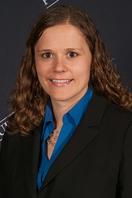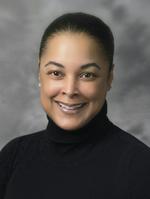Fall 2017 ENE 590 Presentations
| Event Date: | January 18, 2018 |
|---|---|
| Speaker: | Emilie Siverling (ENE) and Quincy Clark (Ag) |
| Time: | 3:30 - 4:20 PM |
| Location: | ARMS B071 |
| Priority: | No |
| School or Program: | Engineering Education |
| College Calendar: | Show |
Improvement of Academic Writing Skills
Emilie Siverling, PhD Student, School of Engineering Education
Emilie will present about the content and skills she learned through a one-credit academic writing course. This presentation will include an overview of and personal reflections about the course as well as an example of an improved piece of Emilie’s writing.
Short Bio
Emilie is a Ph.D. Candidate in Engineering Education and an M.S.Ed. student in Science Education at Purdue University. She received a B.S. in Materials Science and Engineering from the University of Wisconsin-Madison, and she is a former high school chemistry and physics teacher. Her research interests are in K-12 STEM integration, primarily using engineering design to support secondary science curricula and instruction.
Research in Modeling for Engineering Education
Quincy Clark, PhD Student, Agricultural Education and STEM Learning Systems
This presentation presents Quincy's research experience over the fall 2017 semester in the area of modeling for engineering education. Solving realistic problems by using mathematical models has become a potentially important research area in engineering education. Not only is mathematical modeling a critical skill that engineers often use throughout their careers, but eliciting pre-college students to develop their own models to solve problems may increase their interest in science, technology, engineering, and mathematics (STEM). Dr. T. Moore has made interesting progress in this area by conducting research on how young students think about modeling and engage in teams to solve client-based problems. Insights from this work may lead to improved modeling-eliciting activities (MEAs) and a better understanding of how students learn how to develop models; i.e. develop engineering thinking skills. As an educator and researcher, one of her interests is to investigate and eventually develop, effective ways to encourage students to pursue science, technology, engineering, and mathematics (STEM) through problem-solving with modeling of real-world problems. This presentation will report on such efforts to date.
Short Bio
Quincy’s research focuses on the of models and modeling for teaching and learning integrated STEM and mentoring. She is currently investigating STEM learning experiences of middle school students. The research team is developing open-ended, real-world learning activities, Modeling-Eliciting Activities (MEAs), that will connect students to their community through agricultural life sciences (AgLS) contexts. The team plans to design, field-test, implement, and evaluate integrated AgLS MEAs using agricultural life science-based major societal challenges. Quincy is also investigating the impact that STEM intervention/mentoring programs have on enhancing underrepresented minority student’s preparedness for and persistence in graduate school.


